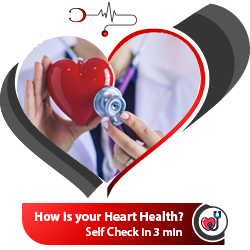Why Employers Need to Take Summer Safety Seriously
With the arrival of summer comes the heat, and if you're an employer in India, you need to be aware of the impact it may have on your employees' health and safety. Working in high temperatures can present a range of risks, from fatigue and dehydration to more serious heat-related illnesses such as heat exhaustion and heat stroke.
What Are the Risks of Working in Hot Weather?
The National Library of Medicine (NCBI-NLM) states that exposure to excessive heat in the workplace can lead to various health issues, ranging from mild skin rash to fatal heat stroke. Some of these impacts include sweating, dehydration, salt loss, reduced perceptual and motor performance, heat exhaustion, decreased ability to work intensively, increased risk of accidents, and elevated body temperature. Body temperatures above 37°C may involve heat strain, while temperatures above 38°C are dangerous for extended periods. Temperatures exceeding 40°C can result in severe effects such as heat stroke, unconsciousness, and even death. Additionally, chronic exposure to excessive heat can cause worse clinical conditions for people with chronic diseases, particularly in the aging working population, and daily dehydration due to lack of water access can lead to kidney damage.
When temperatures soar, many of us face challenges such as dehydration, heat exhaustion, and even heatstroke. As an employer, this brings up an important question: how do you ensure your employees are taken care of in the summer months?
It's important that employers understand how extreme hot weather can affect their employees' physical and mental wellbeing. Heat exhaustion and heat stroke can quickly become life threatening if not addressed. Symptoms include dizziness, confusion, fatigue, cramps, rapid heartbeat and elevated body temperature. Apart from these serious risks, hot weather also has an impact on employee productivity levels. When temperatures rise above 75°F (24°C), it becomes difficult for the human body to regulate its temperature effectively—which results in a decrease in worker productivity due to sweat-induced discomfort.
Why Are Heat-Related Health Risks More Pronounced in India?
You know that India's summers can be intense, but did you know that they can also be dangerous? High temperatures, humidity and direct sunlight all combine to make Indian summers especially hazardous for anyone whose job requires them to be outdoors.
The phenomenon known as a "heat wave" typically occurs when temperatures remain at more than 40°C (104°F) for two days—or longer—and even short periods of extreme heat can put employees and other people at risk. Heat-related illnesses such as heatstroke and sunstroke can occur in minutes, which is why it's so important for employers to be aware of their employees' health and safety amid these conditions.
High heat and humidity also increase the chance of dehydration due to sweat evaporation, inadequate water intake, or overexertion in a hot environment. Furthermore, prolonged exposure to intense temperatures can often lead to fatigue, dizziness, nausea, headaches and fainting. To protect your employees from these risks—and limit your liability as an employer—it is essential that you provide them with the resources they need to work safely in hot weather.
What Workplace Benefits Can Employers Offer for Better Employee Health in Indian Summers?
It’s impossible to ignore the extreme temperatures that come with summers in India. Most times, the heat can be brutal on employees’ health if not managed properly. However, employers can offer workplace benefits to help their employees cope better health-wise. What are these employee benefits?
Flexible work hours
One of the best employee benefits you can offer employees is flexible work hours during the hot summer months. This will give your employees more autonomy to create a schedule that works for them in terms of beating the heat and getting the job done without compromising their health. For example, if your office is air-conditioned and it gets difficult for employees to work during peak summers, you could allow them to adjust their work timings or even work from home.
Heat relief and hydration kits
Heat relief and hydration kits are also great workplace benefits you can provide to employees in order to safeguard their health during Indian summers. You could put together a bag with sunscreen, insect repellent, band-aids and other such items that may be useful in case of a heat-related emergency. Having a bottle of water or electrolyte drinks at hand would also help keep your employees hydrated. Offering these simple yet essential workplace benefits will go a long way in showing your employees that you care about their well-being—even when temperatures are soaring high!
Is Regular Preventive Health Checkup Necessary for Employees During Summertime?
The answer is yes! Heat-related illnesses can creep up on even the most athletic person. It's especially important for employers to provide preventive healthcare solutions in the form of a regular health checkup during summertime to ensure their employees stay fit and healthy. Regular checkups are essential for employees to stay safe in the summer heat. A comprehensive checkup includes checking for early signs of heat exhaustion, heat stroke, and other conditions that can worsen with prolonged heat exposure such as dehydration and electrolyte imbalance. It's also important to look out for symptoms of other inconsistencies such as high blood pressure, diabetes, and heart disease that could be aggravated by the extreme temperatures.
During peak summer months, employers should consider changing work hours or shifting some of the workload indoors, either before or after noon when temperatures are higher. This would reduce an employee's exposure to direct sunlight and harsh temperatures while they are on the job, making it easier for them to maintain their health during hot months.
Providing sufficient shade outside is also a must during peak heat hours in order to protect workers from sunburns or skin damage due to overexposure to UV rays. Providing regular breaks or regular hydration sessions is another great way to help employees continue their work without worrying about potential health risks due to high temperatures.
Written By: Indus Health Plus Doctors Team
-
Full Body Checkup Package
21 Tests (77 Parameters)
Offer Price 26,666 -
DNAwise Genetic Total Package
4 Tests (80 Parameters)
Offer Price 26,223 -
Employee Health Checkup Package
12 Tests (65 Parameters)
Offer Price 8,888 -
Preventive Full Body Lab Checkup Package
12 Tests (65 Parameters)
Offer Price 11,110










